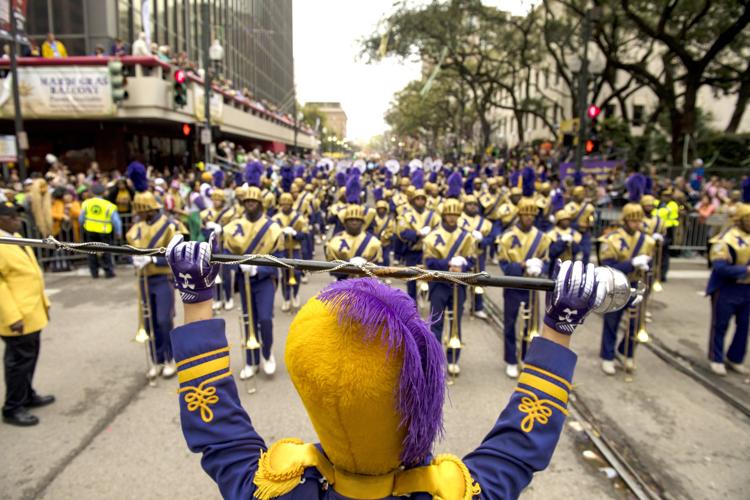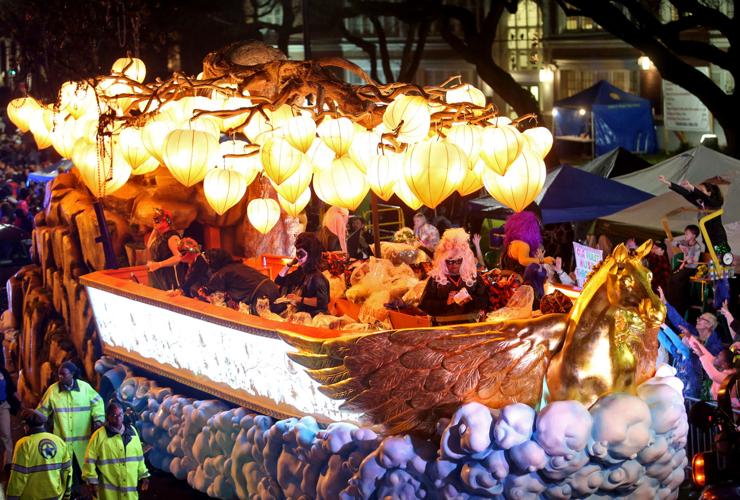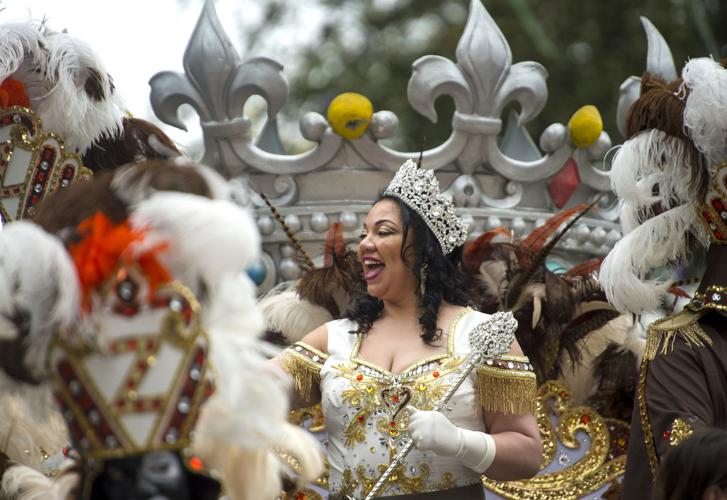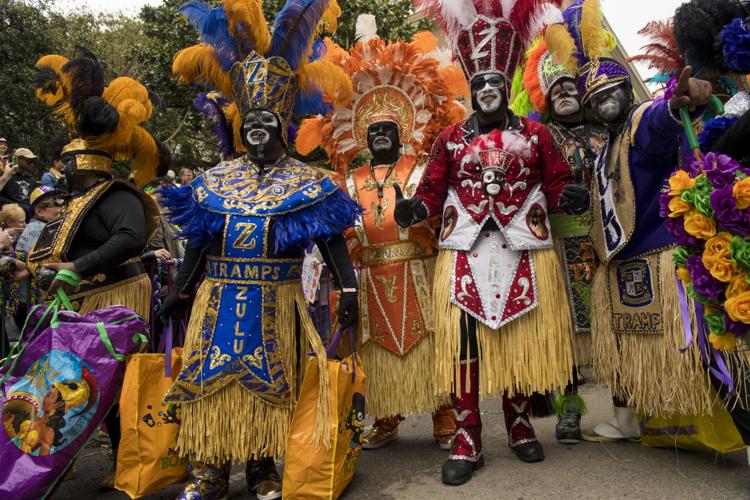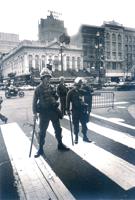For the first time in 42 years, New Orleans will not host parades during the 2021 Mardi Gras season, a dispiriting if not surprising result of restrictions aimed at slowing the spread of coronavirus.
The decision by Mayor LaToya Cantrell to ban krewes from rolling during Carnival, among the more significant developments in the city’s battle against the virus, came via a "Frequently Asked Questions" page on City Hall's web site: "Parades of any kind will not be permitted this year because large gatherings have proven to be super spreader events of the COVID-19 virus."
Fat Tuesday could move to Easter or Fourth of July if pandemic persists, official says
During a news conference Tuesday, administration spokesperson Beau Tidwell confirmed the ban and argued that it was always likely given the coronavirus restrictions in place, notably one that prohibits outdoor public gatherings of more than 250 people.
"I don't think this should be a surprise to anyone," Tidwell said.
But it was among Carnival krewes. Many that had been taking part in official discussions about how the next Mardi Gras season would look said they weren't prepared for the announcement.
Local Mardi Gras krewes were left scrambling Tuesday morning after news broke that the city's website proclaimed there would be no parades thi…
"It’s a total shock at this moment," said Endymion president said Dan Kelly, who fielded calls and messages from other krewes surprised at the news. Kelly had attended the Mayor's Mardi Gras Advisory Committee meeting less than two weeks ago and recalled "she didn't say anything about there not being any parades.”
Carnival chronicler Arthur Hardy said that while many krewe members agreed with Cantrell's decision, given the state of the pandemic, few saw it coming after she had asked them to work on potential solutions.
"Why were we advised to reinvent our parades and figure out how we can socially distance, take temperatures on the floats, if we knew all along — or the city knew all along — that there wouldn't be parades?" Hardy said.
"The bad guy here is the virus," he said, adding that for public officials, "It's a tough position to be in."
The ban on parades comes as coronavirus cases are rising across the U.S. as well as in Louisiana. More than 160,000 new cases were added over the last day across the country.
In New Orleans, cases are rising though not as sharply as in many other areas. Over the past seven days, the city has averaged about 74 cases per day, significantly higher than the ceiling set by the administration of 50 cases, and has seen the rate of positive tests increase.
New Orleans became a early U.S. hotspot for the coronavirus in March and April, with many experts pointing to the massive crowds gathered in the city for the final days of Carnival just a few weeks earlier as a potential cause.
On Tuesday, city officials stressed that Carnival 2021 is not "canceled" — and couldn't be — given that it is a weekslong cultural celebration tied to the religious traditions of the Roman Catholic Church.
Tidwell said that whatever the next season looks like, it will be a holiday that honors the city's tradition but is safe and follows public health guidelines. Carnival, he said, "is going to look different."
Now, krewes and residents are left to sort out what that means without a central parading ritual that has long defined it.
Carnival begins Jan. 6, known as Twelfth Night, when several krewes hold events that involve streetcar rides or walking parades. The leaders the Krewe of Jeanne D'Arc, which holds a French Quarter walking parade that evening dedicated to the 15th-century warrior, had already announced that its 2021 procession was cancelled, though co-captain Antoinette de Alteriis said it was possible that the members might produce a coronavirus-aware alternative. De Alteriis said krewe members have been asked to make suggestions for a celebration that will not draw the customarily dense crowds to the narrow streets of the Vieux Carré.

An image posted on the City of New Orleans official Twitter account says there will be no parades in 2021.
“We don’t know what we’re going to do,” she said, “but we know what we’re not going to do.”
Several other krewes had already canceled their parades before City Hall's announcement. The satirical Krewe du Vieux, which scrubbed its annual roll through Faubourg Marigny and French Quarter earlier this month, said it was planning an alternative celebration involving art installations throughout the city.
Representatives of the Rex organization and the Zulu Social Aid & Pleasure Club said they supported City Hall's decision even if it was hard to take.
“These are unprecedented times,” said Zulu President Elroy James. “We as krewe captains and leaders in the Mardi Gras community have to put our heads together ... and figure out what 'different' looks like, excluding parades.”
This week, City Hall issued a request for community input on the nola.gov website to help solve the dilemma of how to produce the country’s biggest free party during a pandemic. According to the solicitation, Cantrell was seeking ways to prevent “unstructured crowds of strangers.”
Carnival parades have run uninterrupted in New Orleans for decades, the centerpiece of a celebratory season that draws tourists from around the world and has become a reliable economic engine for the city. But earlier in its history, wars and other calamities forced a halt.
What does it take to kill Mardi Gras? War? Disease? Strikes? Hurricanes?
Parades weren't held during the Civil War, amid Reconstruction era unrest in 1875, the yellow fever epidemic in 1879, World War I and World War II. The last time parades were canceled was in 1979 due to a strike by the Police Department.
At Tuesday's news conference, Tidwell acknowledged the decision to forbid parading wasn't rolled out in a normal manner, saying, "that's something I'd like to tighten up internally."
"Could it have gone out more artfully? Absolutely," he said.
Staci Rosenberg, captain of the Krewe of Muses, said regardless of the way it was announced, she understood the balance between holding out as long possible to sustain hope and delivering disappointing but necessary news in the coronavirus era.

A section of the city of New Orleans website says no parades for Carnival 2021
“But knowing for sure,” she said, “there’s a hard moment there.”
If nothing else, Rosenberg said, this gives krewes more time to plan their parades for 2022.
“We’ll be back with a vengeance was soon as we can,” she said.
Jeff Adelson contributed to this report.

